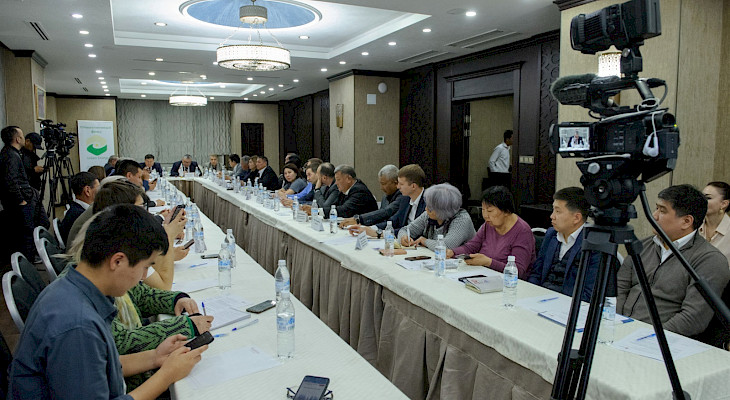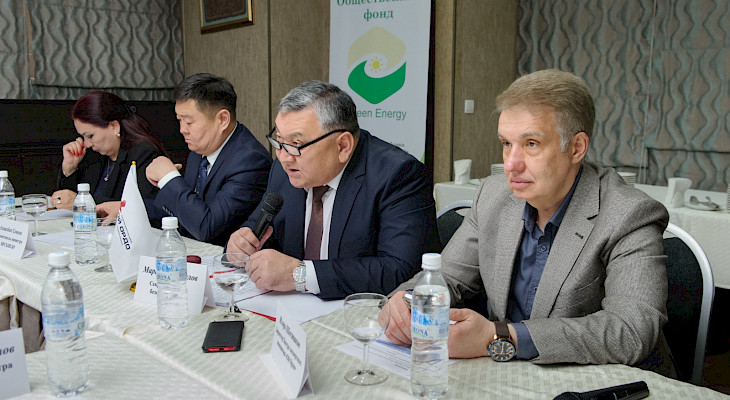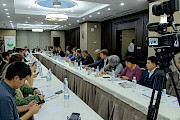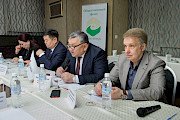The problems of water scarcity in Central Asian countries, as well as the prospects for their solution within the framework of interstate cooperation, were discussed by participants of the international conference: "Hydro Resource Deficit in Central Asia: Ways to Solve Water Issues at Regional and International Levels." The event was organized by the Center for Expert Initiatives "Oy Ordo" in collaboration with the NGO "Green Energy."
Marat Imankulov, Secretary of the Security Council of Kyrgyzstan, reminded that many experts in their forecasts come to the bleak conclusion that in the next 25-30 years humanity will face a global problem of drinking water scarcity. By 2050, there will be enough hydro resources on the planet to meet the needs of 9 billion people, but the resources will be unevenly distributed.
"UN reports and expert assessments note that if measures to preserve water resources are not taken now, by 2050 more than 5 billion people will have problems accessing water. According to World Bank analysts, by 2050, against the backdrop of population growth in Central Asia to 90 million people, the drinking water deficit will reach 25-30%, and the need for irrigation water may increase by 30% by 2030," Imankulov said.
At present, the main challenges for Kyrgyzstan, according to him, are: reducing the available drinking water; high wear and tear of water infrastructure; transboundary water sharing issues; incompleteness of reforming the water management system. There are several other problems that also affect the water security of the country. As official statistics show, the situation with glaciers in Kyrgyzstan is causing not just concern, but strong alarm and requires urgent measures.
"The largest rivers originate in our country - the Amu Darya, Syr Darya, Chu, Talas, and others, providing water to both Kyrgyzstan and neighboring states. After 1991, the ties and structure of the unified economic mechanism for managing water resources were destroyed. The issue of developing new rules and norms for effective and rational water use is on the agenda, as well as the need to revise regulatory acts and schemes in the field of transboundary water resource sharing," emphasized the Secretary of the Security Council of Kyrgyzstan.
He noted separately the problem that arose as a result of the construction of the Kushka Canal in Afghanistan: "Annually, it will divert 10 cubic kilometers of water from the Amu Darya. This will inevitably lead to an increase in water intake from the Syr Darya, which may lead to local conflicts on this basis."
Deputy Minister of Water Resources, Agriculture, and Processing Industry of Kyrgyzstan Almazbek Sokeyev also emphasized that there are many problems in the field of water use that require prompt solutions.
"In the light of climate change, we need to adapt to new situations. If previously low water levels occurred approximately once every 6 years, now it happens almost every year. In addition, the cycles have shifted, if previously water came in May, now it comes in June. That is, we need to adjust our activities considering these conditions. Given the trend towards low water levels, it is necessary to build new hydrotechnical facilities, otherwise, we will not be able to supply water properly," the official noted.
He said that in Kyrgyzstan, active work is currently underway to minimize losses in water use. Much attention is paid to the irrigation system: "Over the past three years, funding for the repair of irrigation networks has increased 8 times, thanks to which in the last six months we have been able to increase the volume of water supply by about 40%, as many canals have been cleaned and are functioning. The reconstruction of these structures will allow minimizing losses, which means we will be able to supply more water to downstream countries. We are working on this issue with colleagues from neighboring countries.
For example, with Uzbekistan, we are working together on the rehabilitation of the Kasan-Sai reservoir. With Kazakhstan, we have agreed to jointly clean the Big Chui Canal - BCC," Sokoev said.
To be continued
Source: CEI "Oy Ordo"
CentralasianLIGHT.org
May 7, 2024




